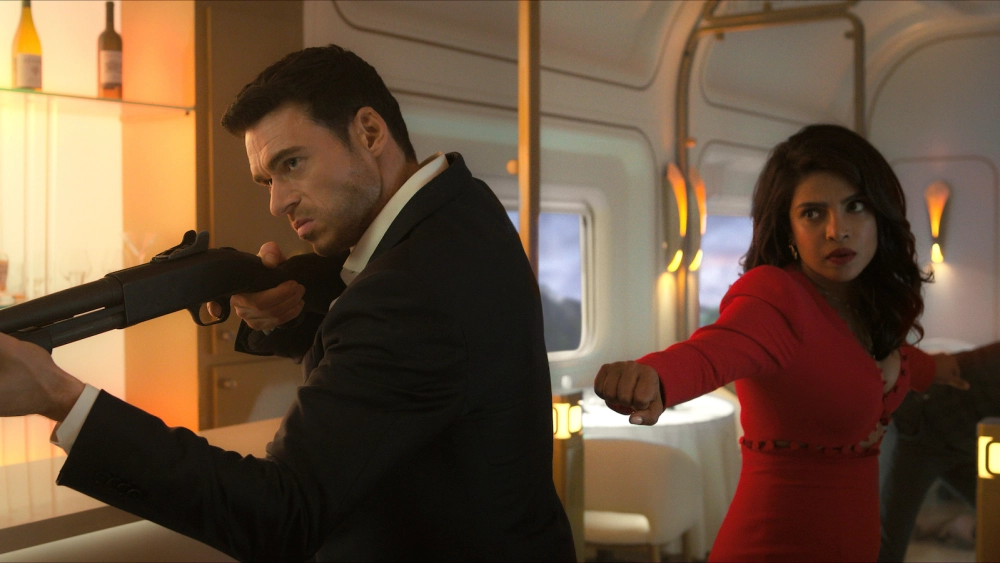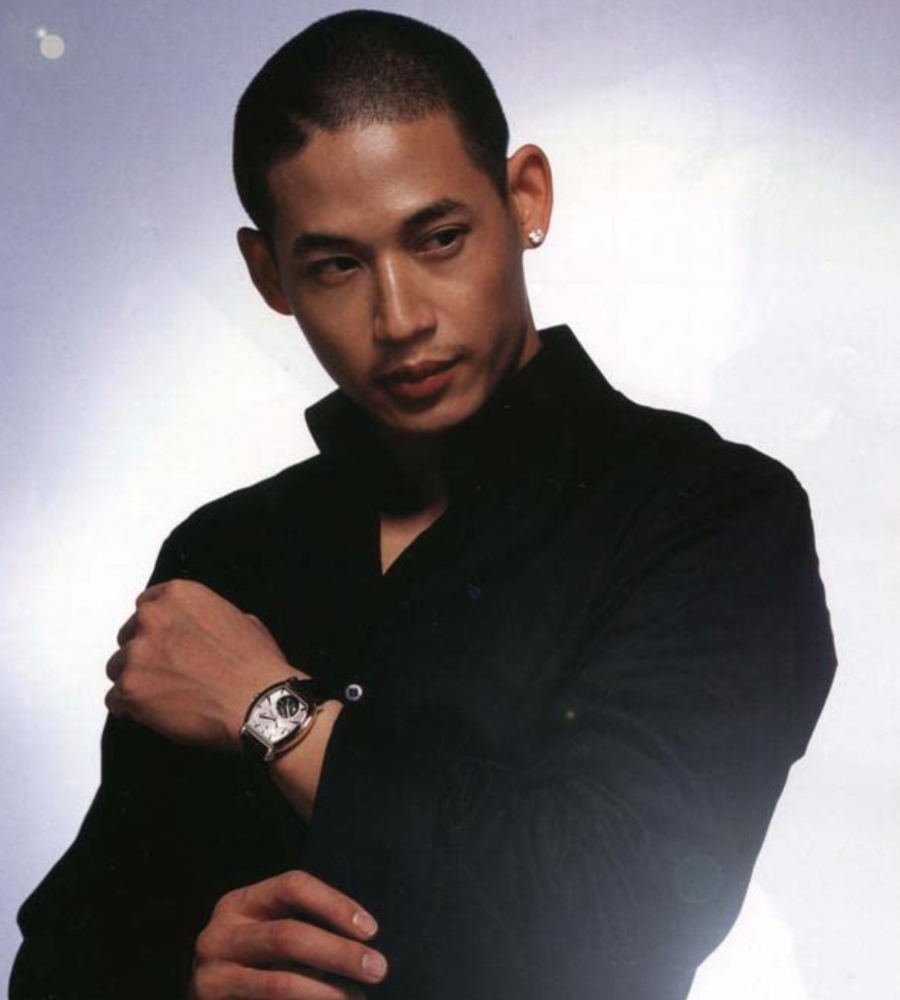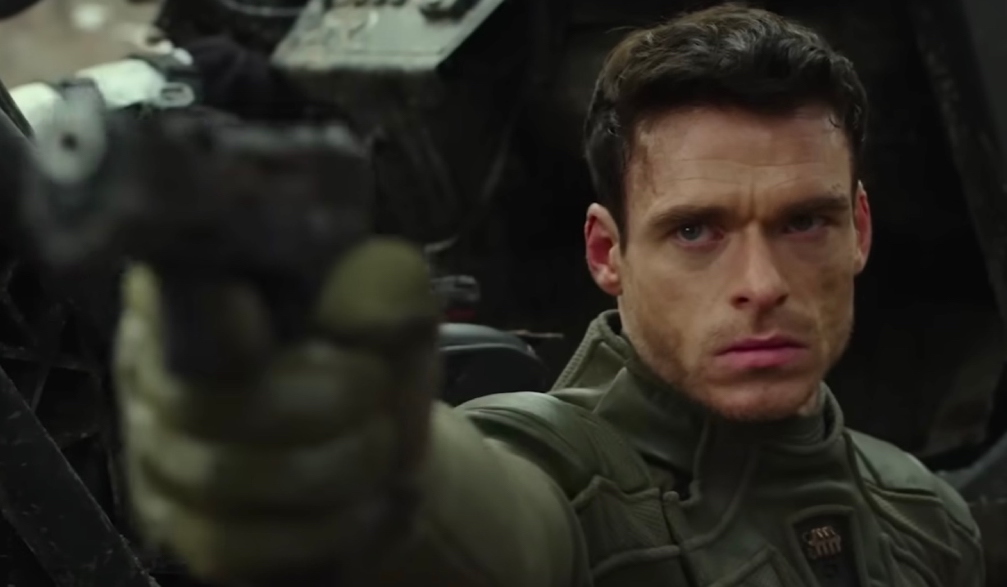
Lovers, enemies, spies — Mason (Richard Madden) and Nadia (Priyanka Chopra Jonas) have trouble keeping their identities straight. Especially since an amnesia chip implanted in their brains might erase their memories at any moment. What they do know is that everyone is trying to kill them. Finding out why is the secret behind Citadel, a six-part series now streaming on Amazon.
Created by Josh Appelbaum, Bryan Oh, and David Weil, Citadel is the basis of several spin-off shows set in India, Mexico, and other countries. Developed in part by the Russo brothers‘ AGBO, the first episodes were directed by Newton Thomas Sigel, who is also one of the series’ DPs.
With a budget approaching $300 million, Citadel is one the most ambitious and expensive series ever commissioned. Closing credits list some 80 stuntpeople under the direction of Stunt Coordinators James Young and Don Thai.
Theerathada works with 87Eleven, the action design team formed in 1997 by Chad Stahelski and David Leitch. 87Eleven has been the most significant factor in onscreen action for the past several years. Theerathada has worked on films and shows like The Gray Man, The Matrix Resurrections, and Hawkeye. He spoke with Below the Line via Zoom.

Below the Line: How big exactly is this show?
Don Thai: It’s a big group of people around the world, not a specific number. We recruit as we go along, depending on each project. We have a core group we work with at 87Eleven, and James Young has his own group. It’s a collaboration with a whole bunch of stunt groups.
BTL: How much time did you have to prep and rehearse the action scenes?
Thai: This one’s a little different. Usually, I work on bigger movies. I don’t do too many series because we have a longer prep time for movies. But they’re trying to treat the Citadel series as films, with longer preps than normal TV. We had a few months of prep, and as we’re filming we’re also prepping at the same time.
We delegate and multitask. We’ll prep ahead of time, train the actors, work with special effects and all the other departments to get everything ready. We’ll film that sequence, and at the same time, we have other teams working on other preps.
BTL: How much is practical versus effects?
Thai: That depends. Nowadays you’re always going to have some kind of effects in there, special effects, visual effects, whatever. VFX will always enhance whether we do it real or not. For instance, in a car sequence where the vehicles are sliding and crashing and all that, we’re still doing it practically. But they may enhance it with some smoke or fire or what have you. So we’re doing real stunts, but all the other departments are helping to enhance them.
BTL: Do you pre-vis everything?
Thai: Yes, that’s the process. Especially on this series, because we’re prepping at the same time we’re filming. We’ll choreograph everything and then have to revisit later after the director, the producers, and everyone who needs to see what we’re trying to achieve. Once we get approval, if everyone’s okay with an idea or concept, we start shooting because it saves a lot of time. We know which angles we’re using and where we need to put everything.

BTL: You set up difficult obstacles for your team, like cramped quarters. You stage a fight inside the bathroom of a railroad car, for example, between Madden and a strongman.
Thai: I’m so used to working in close spaces. Whenever they ask, “Is this going to be enough room for you?”, I say, “Yeah, no problem.”
We try to get the dimensions of the room as fast as possible. Then in our rehearsal space, we’ll tape out the bathroom and mock it up with cardboard boxes or what have you. This fight prep was faster because we were lucky enough to have a stuntman be the actor. Spencer Mulligan is a great performer. It’s easy for him to pick up the fights.
The harder part is training the actor. This is my first time working with Richard Madden. He picks up things really fast, and he’s willing to go for it. We see what he has trouble with and work on that specific thing.
I’ve worked with so many actors. Our job is to give them a black belt in a week [laughing]. We have a process, a secret process to get performers there. It doesn’t matter how good the actor is, if your dance partner’s not good, then the sequence isn’t going to work. For that scene, with Spencer, we had a great dance partner for Richard.
BTL: It’s an elaborate fight with overhead shots and I presume a lot of wire work.
Thai: Surprisingly, the only wire sequence in that bathroom was when Spencer gets pulled out the window. Everything else we could work out with production design. For instance, there is a handicap rail in the room. We told them to make it real and reinforce it so we could use it as a brace.
We like to do everything as practically as possible. That saves a lot of time as well. The minute you start adding wires, it extends the process so much. You have to put a harness on, zip up the wires — we don’t really have time for that.
BTL: In Episode 4, Chopra Jones kicks a bad guy off a staircase onto a concrete floor.
Thai: That we did with wires, more to assist Kirk Jenkins with landing so he doesn’t kill himself. He’s a super-talented performer, I’ve known him since he was a baby. His dad was actually my coach growing up. I knew what he can do, which is another thing. Once you can put him in that position, Priyanka can kick him for real.
BTL: How much was she willing to do?
Thai: She was willing to do everything. Priyanka and Richard have a great attitude. It’s hard when you’re working with someone who doesn’t want to do anything, because we want to see the face during the stunts. Like on John Wick, Keanu [Reeves] wants to do everything.
Actually, with those two we have to say, “Okay, hold on. Maybe you shouldn’t do this one.” They’ll argue, and you tell them that you know they can do it, but we’re going to have to do it multiple times. We have to do multiple setups, multiple takes.
They’ll win some arguments. If we’re going to see their faces, they can go ahead. If we’re seeing their backs, I’ll tell them it’s not worth it. Save your body, right? We’ve got other episodes to do. Every now and then we have to have that talk.
BTL: Does it make a difference that director Newton Thomas Sigel is also a DP?
Thai: When people are able to multitask it helps everything. A lot of times directors tell a DP, “I’m trying to get this,” and the DP has to figure out how to achieve that. Someone who’s already a DP knows ahead of time what he needs. On location shots he knows, okay, I want this lighting.
A lot of this show was actually on location, which limits you. There’s a fight in a restaurant that we shot in Marcel, a very famous place in Atlanta. We don’t get to cheat there with a million lights. We see the ceiling, figure out how much room we have, and it’s very helpful when someone knows how everything should be set up.
BTL: On the other hand, Sigel can make it harder for you because he wants his camera everywhere.
Thai: Yes, but that’s usually the case. I’m used to it, we’re used to adjusting on a whim. For that scene, the fight was originally supposed to take place in a little hallway near the bar. A couple of days before shooting, they decided to stage it in the main restaurant. That gave us more room, but we had to adjust the fight on short notice. That’s where prep and pre-vis help because we can adjust and not remake the sequence.
BTL: In Citadel, the fights seem to cause a lot more damage than in other series. The leads get hurt. How crucial was selling the pain?
Thai: Because we want to make everything real, right? They’re not superheroes. We need the audience to feel that they’re hurt, bleeding. It can’t be that they did this huge fight and they come out unscathed, their hair’s still perfect. That’s been a pet peeve of mine, but we don’t always have a say in how it’s done. I believe the minute it starts being faked, you take the audience out of the moment.
BTL: Are you restricted in what you can do? Can there be too much gore? Can you break too many things?
Thai: Well, in the case of Marcel, that’s a real restaurant. It was open for business. So, it’s not like we can damage the glass and tables. If we want to destroy something we have to do it on set.
As far as gore, Amazon knows it’s dealing with 87Eleven, and we just love violence. We always go super violent first and then we’ll see how much they want us to pull back. We’ll do it and ask, “Is that too much?” We’ll turn it down if we have to, but Amazon was pretty cool. This is my first time working with that company, and I thought everyone was super open with ideas and concepts.
Citadel is now streaming on Prime Video.





